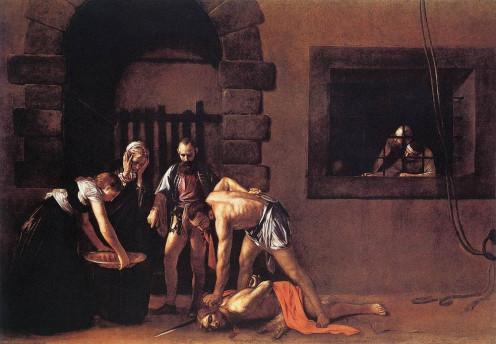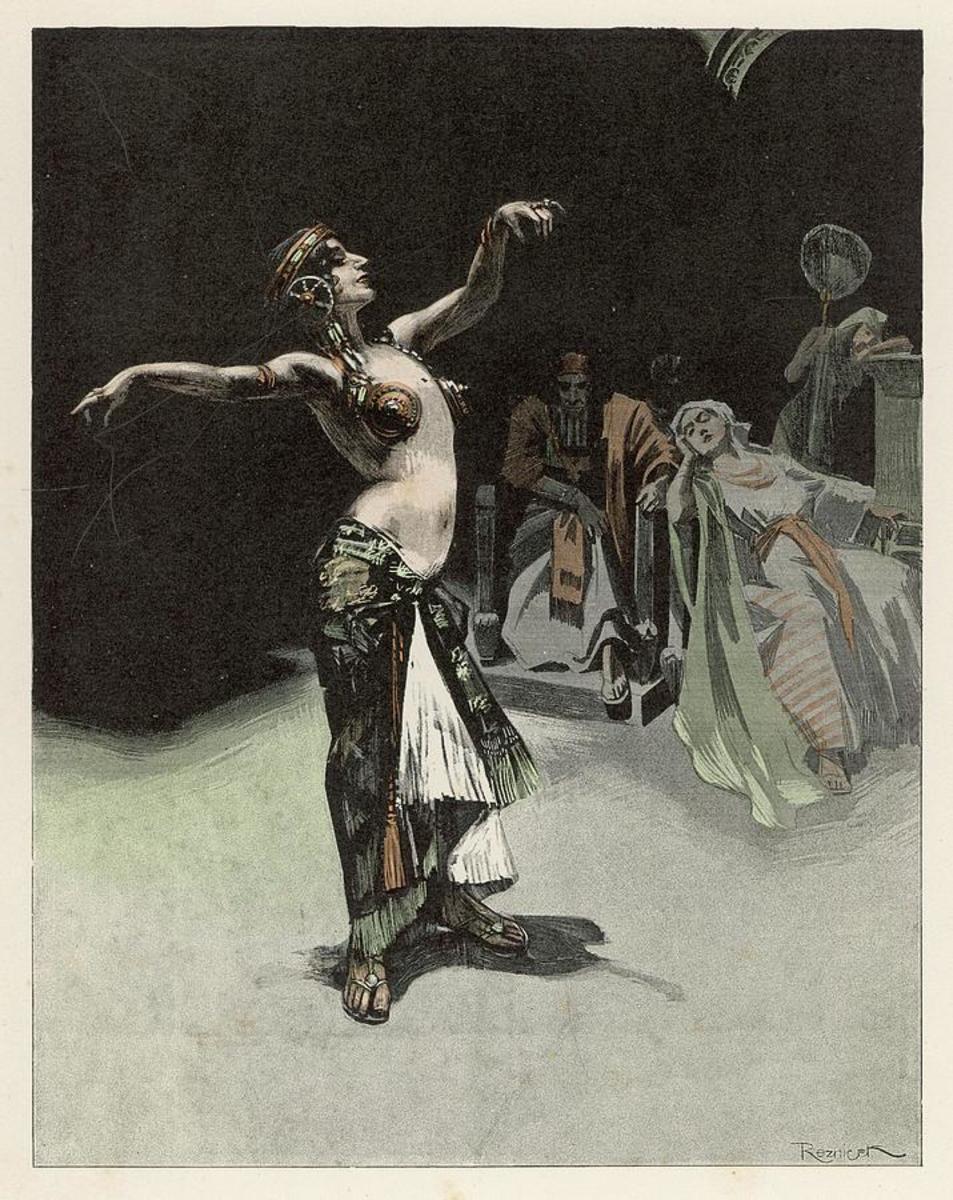Elijah the Prophet will not Return


Introduction
Due to the influence of Dispensationalism, with its strictly literal interpretation of the Scriptures, many Christians may feel it compromises their beliefs to consider a spiritual interpretation, even when appropriate.
For instance, Jesus' discourse with His disciples in Matthew 17:10-13 is typical of the Scriptures being misunderstood by those who insist on a literal return of Elijah.
Mat 17:10-13 KJV And his disciples asked him, saying, Why then say the scribes that Elias must first come? 11 And Jesus answered and said unto them, Elias truly shall first come, and restore all things. 12 But I say unto you, That Elias is come already, and they knew him not, but have done unto him whatsoever they listed. Likewise shall also the Son of man suffer of them. 13 Then the disciples understood that he spake unto them of John the Baptist.
The disciples believed Elijah would physically return; the Jewish people still set a place for him at the Passover table. Nevertheless, Jesus taught the disciples the spiritual significance of John the Baptist's ministry and the fulfilment of Malachi's prophecy.
Let's examine the misconstrued literal interpretation of 'Elijah's return'.
The Prophet Malachi

The disciples missed ‘the second coming of Elijah’ and it is not difficult to understand why, since they interpreted Malachi 4:5 literally.
Malachi the Prophet
Malachi was the last of the Old Testament prophets to call Israel to repentance. There was a gap of 400 years between Malachi and John the Baptist.
Mal 3:1-2 KJV Behold, I will send my messenger, and he shall prepare the way before me: and the Lord, whom ye seek, shall suddenly come to his temple, even the messenger of the covenant, whom ye delight in: behold, he shall come, saith the LORD of hosts. 2 But who may abide the day of his coming? and who shall stand when he appeareth? for he is like a refiner's fire, and like fullers' soap:
Mal 4:5 KJV Behold, I will send you Elijah the prophet before the coming of the great and dreadful day of the LORD:
Malachi proclaimed Elijah would prepare the way of the Messiah, prior to 'the great and dreadful day of the LORD'.
A Quote from John Wesley's Explanatory Notes
Malachi 4:5 'The great and dreadful day of the Lord - This literally refers to the times of vengeance upon the Jews, from the death of Christ to the final desolation of the city and temple, and by accommodation, to the end of the world.’
Of all the commentaries at my disposal, John Wesley most clearly defined Malachi 4:5.
Far be it from me to criticise such a wonderful man of God, but in my opinion, it is a great pity he felt it necessary to add 'and by accommodation, to the end of the world’. There is in no mention of the end of the world in the Scriptures.
Do you believe Elijah will return in the future?
The Timeline of Elijah the Prophet's Return
It is important to identify the timeline of Elijah’s coming; Malachi prophesied Elijah would prepare the way for two major events:
1) 'I will send my messenger, and he shall prepare the way before me' To prepare the way prior to Christ's advent.
2) 'before the coming of the great and dreadful day of the Lord' To proclaim the great and terrible day of the Lord at the passing of Old Covenant Israel, which involved the destruction of the temple, Jerusalem, and the dispersion of the Jews.
John the Baptist warned of these events, and both were fulfilled during the lifetime of his generation.
- Mat 17:12-13 KJV But I say unto you, That Elias is come already, and they knew him not, but have done unto him whatsoever they listed. Likewise shall also the Son of man suffer of them. 13 Then the disciples understood that he spake unto them of John the Baptist.
According to Dispensationalism, John did not demonstrate the miracles of Elijah, and the great and terrible Day of the Lord has not occurred. Therefore, Malachi's prophecy remains unfulfilled until a future appearance of Elijah. This assumption is despite the words of Jesus that Elijah had already come! There is neither any suggestion in the Scriptures of a 2000 years gap between the two events, nor the slightest hint of double fulfillment of prophecy as some scholars suggest. If the great and terrible day of the Lord is a future event in the 21st century, then why did Jesus emphatically state 'Elijah' returned in the 1st century AD?
The great and terrible day of the Lord is not an 'end of the world' event in the far and distant future. On the contrary, Malachi's prophecy was written specifically to Old Covenant Israel, whose relationship with the Lord was about to end in judgement. The disciples missed ‘the second coming of Elijah' because they interpreted Malachi 4:5 literally.
John the Baptist

John the Baptist
According to the Scribes and their literal interpretation of Malachi 4:5, Elijah would return as a forerunner to the Messiah.
Jewish scholars anticipated the physical return of Elijah, descending from heaven in the chariot that had previously caught him away. Therefore, in their estimation, John the Baptist was not Elijah. Consequently, Jesus could not have been the long awaited Messiah.
- Luk 1:15-17 KJV For he shall be great in the sight of the Lord, and shall drink neither wine nor strong drink; and he shall be filled with the Holy Ghost, even from his mother's womb. 16 And many of the children of Israel shall he turn to the Lord their God. 17 And he shall go before him in the spirit and power of Elias, to turn the hearts of the fathers to the children, and the disobedient to the wisdom of the just; to make ready a people prepared for the Lord.
John came 'in the spirit and power of Elijah', having been 'filled with the Holy Ghost even from his mother's womb'. It was the same 'spirit and power' Elijah had been endued with 800 years earlier, but John was not Elijah in person.
- Luk 7:27-28 KJV This is he, of whom it is written, Behold, I send my messenger before thy face, which shall prepare thy way before thee. 28 For I say unto you, Among those that are born of women there is not a greater prophet than John the Baptist: but he that is least in the kingdom of God is greater than he.
A Quote from Matthew Henry's Commentary on the Whole Bible
Luke 7:28 'He was, upon this account, so great, that really there was not a greater prophet than he. Prophets were the greatest that were born of women, more honourable than kings and princes, and John was the greatest of all the prophets. The country was not sensible what a valuable, what an invaluable, man it had in it, when John Baptist went about preaching and baptizing. And yet he that is least in the kingdom of God is greater than he.'
- Acts 13:25 And as John fulfilled his course, he said, Whom think ye that I am? I am not he. But, behold, there cometh one after me, whose shoes of his feet I am not worthy to loose.
Some scholars insist John failed in his ministry. Such a suggestion contradicts the words of Jesus when He spoke of John being the greatest of the prophets. Not only by his character, preaching, faithfulness and martyrdom, John's ministry was of the greatest importance in that he prepared the way for the Messiah and warned of impending judgement. John successfully completed his mission.
A Quote from Adam Clarke's Commentary on the Bible
Acts 13:25 'As John fulfilled his course - As John was fulfilling his race, he said, etc. It has been supposed that the word δρομον, course, or race, is used here to point out the short duration of the Baptist’s ministry, and the fervent zeal with which he performed it. It signifies properly his ministry, or life. A man’s work, employment, function, etc., is his race, course, or way of life. John had a ministry from God; and he discharged the duties of it with zeal and diligence; bore the fatigues of it with patience and resignation; and was gloriously successful in it, because the hand of the Lord was with him.'
Joh 1:20-21 KJV And he confessed, and denied not; but confessed, I am not the Christ. 21 And they asked him, What then? Art thou Elias? And he saith, I am not. Art thou that prophet? And he answered, No.
'Art thou Elias?' John the Baptist made it clear, he was not Elijah in person!
'Art thou that prophet?' Meaning the prophet to whom Moses referred in Deuteronomy 18:15. 'The Prophet' promised by Moses was none other than the Messiah. Peter, while preaching Christ to the men of Israel on the day of Pentecost, referred to the prophecy of Moses, thus confirming its fulfillment in their generation…Acts 3:22.
'I am a voice' John called the people to repentance, because the Jews to whom he preached were at that time in a spiritual wilderness and unfit to receive the King...Isaiah 40:3.
- Joh 1:23 YLT He said, `I am a voice of one crying in the wilderness: Make straight the way of the Lord, as said Isaiah the prophet.'
Although John the Baptist was not Elijah in person, he was the fulfilment of prophecy.
The Beheading of St John the Baptist

‘If Ye Will Receive It’
- Mat 11:14-15 KJV And if ye will receive it, this is Elias, which was for to come. 15 He that hath ears to hear, let him hear.
‘if ye will receive it’ Jesus accentuated the importance of His statement, He was teaching a doctrine different to the prevalent view at the time. His proclamation varied from the current expectations of the Jews, and the disciples might be disposed to question it.
Matthew 11:15 ‘He that hath ears to hear ...' - This expression is frequently used by Christ. It is a proverbial expression, implying that the highest attention should be given to what was spoken. The doctrine about John he regarded as of the greatest importance. He among you, says he, that has the faculty of understanding this, or that will believe that this is the Elijah spoken of, let him attend to it and remember it.’
— Albert Barnes, Notes on the BibleFeedback
Has this Hub challenged you to search the Scriptures?
Conclusion
The vast majority of John the Baptist’s generation was oblivious to the presence of the Messiah, and stubbornly ignored the warnings of impending doom. Consequently, except for the remnant, they suffered the judgement in AD 70.
Jesus taught the disciples an important lesson concerning Old Testament prophecy when He explained the spiritual fulfillment of ‘the second coming of Elijah’. Not all prophecy is to be interpreted literally, and certainly not by the theory of double fulfillment!
The Bible student has to be open minded and capable of differentiating between literal and spiritual fulfillment without presupposition or bias.
This is also a prerequisite when interpreting prophecies concerning the second coming of Christ!
The fulfillment of Malachi's prophecy was in the 1st century AD.
What do you think?
Alexander Gibb

© 2011 Alexander Gibb








